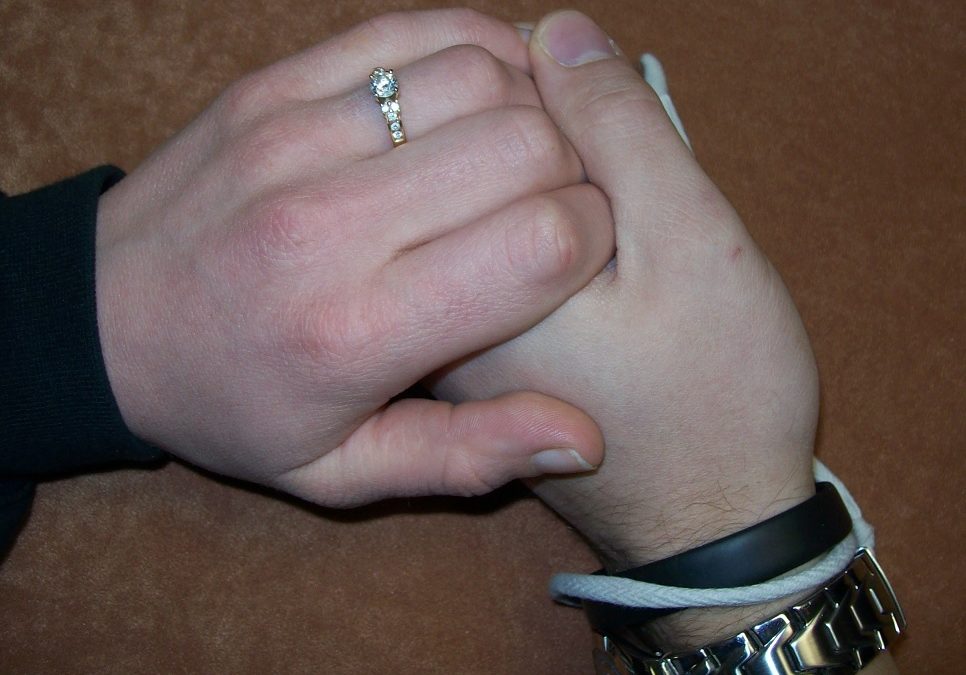Question: “I have been with my husband for 4 years, married 3, and we are on the verge of divorce but trying to save our marriage. … We started having intimacy issues and communication issues 6 months after getting married. … We stopped talking to each other and I became cold, distant, bitter, and angry.
A year ago he started having an emotional affair [then] stopped talking to her … .
We tried to do marriage counseling but couldn’t continue because of covid … and he told me [he] wanted a divorce when I confronted him about it. …
We have decided to work on our marriage 30 days at a time but still making preparations for a divorce. … He does show me affection everyday but there’s no passion and intimacy.
I’m tired of feeling unwanted and rejected and if it doesn’t change I will be leaving … . Just curious what everyone else thinks.” A.F.H.
Brenda: I agree [with the counselor that] it’s 100% possible to save your marriage and for each of you to feel loved emotionally and physically. My husband and I have helped hundreds of couples — many separated and divorced — to reconnect and find the love they need.
Divorce rates of 2nd marriages are much, much higher than 1st marriages, and 3rd marriages have even higher divorce rates than 2nd marriages. Why? Because individuals have difficulty not just pin-pointing what they need from a spouse/SO but also effectively expressing it to their partner/SO in all types of relationships (married or not). And, if they seek to bring it up, often they are not able to do so in a non-threatening, safe, direct, helpful, positive, and encouraging manner, such that the partner can actually “hear” and understand. So if a person doesn’t learn and apply these emotional communication practices in their first relationship, then they’ll likely not be able to in a second, third, etc.
We often tell ourselves that things will be better with another spouse/SO; however, depending on the situation, often times that may not be the case. Why? The feeling of “being in love” once one “falls in love,” on average lasts about 22-24 months. The “I’m in love” euphoria eventually wears off, regardless of who someone is with — it’s a biological fact. Therefore, if a person hasn’t learned “how to love” — that is, to take action in effectively using the partner’s “love language” — there will likely be a disconnect. And when the connection between each other has diminished or disappeared, it’s often a matter of time before one of the spouses will come across someone else who fills the emotional emptiness. When this occurs, it can lead to emotional affairs, then physical affairs, other betrayals, functioning as “a single” even though married, or engaged in activities to numb one’s self from the emptiness, pain, and hurt of a failing relationship, among other things that are destructive to each person and the relationship itself.
Yes, it would be great if we all auto-magically knew how to make love and relationships work. And it takes work and effort, otherwise all us imperfect people would somehow have perfect relationships. It doesn’t just happen, and it’s no one’s fault because no one REALLY teaches us how to have consistent, ongoing, healthy relationships — especially when so much happens with childhood baggage and our family of origin and the media. Often the people closest to us, our parents and extended family, struggle with the same challenges. Many of us have not had mentors or role models who demonstrate what real love sounds and looks like; that is, to fully love themselves and others.
And if they do, frequently we expect to have “a perfect relationship” ourselves without realizing what it takes to have lasting love. It’s rare to have someone with a solid marriage, or a relationship we aspire to, who will actually explain what goes into it and guide us in building such a relationship ourselves. Additionally, society gives us a warped view of what love is — such as portraying completely unrealistic fairy-tale expectations or extreme fantasy portrayals of how our partner “should be.” My husband and I continually acknowledge that, since we’re actually both imperfect people, we’re setting ourselves up for failure if we’re expecting to have the best outcome possible without equipping ourselves with as well as using daily the emotional communication tools and techniques needed to maintain a strong bond with each other.
These are all skills and tools that can be taught with the right kind of coaching — either together as a couple or as an individual person if the spouse does not want to participate. It takes work. Anything worth having involves working for it; otherwise everyone would have a great marriage / relationship.
My husband and I teach the tools that we used to bring ourselves back from the brink of divorce. And we continue to use this toolbox and skills regularly to keep the spark in our relationship. You can do it, too, with your husband by your side or by beginning to do so yourself.
__
Factoid: As of 2009, the average length of a first marriage in the U.S. was 8 years. The average age men were at when they went through their first divorce was 32, for women this was 30. The average length of a second marriage was about 10 years. In 2018, the divorce rate in the U.S. stood at 2.9 per 1,000 of the population. (Source: Statista.com, U.S. – divorce rate 1990-2018, Published by Erin Duffin, Jan 3, 2020)
Brenda Dow, Marriage Educator and Relationship Coach | https://brendadow.com/

